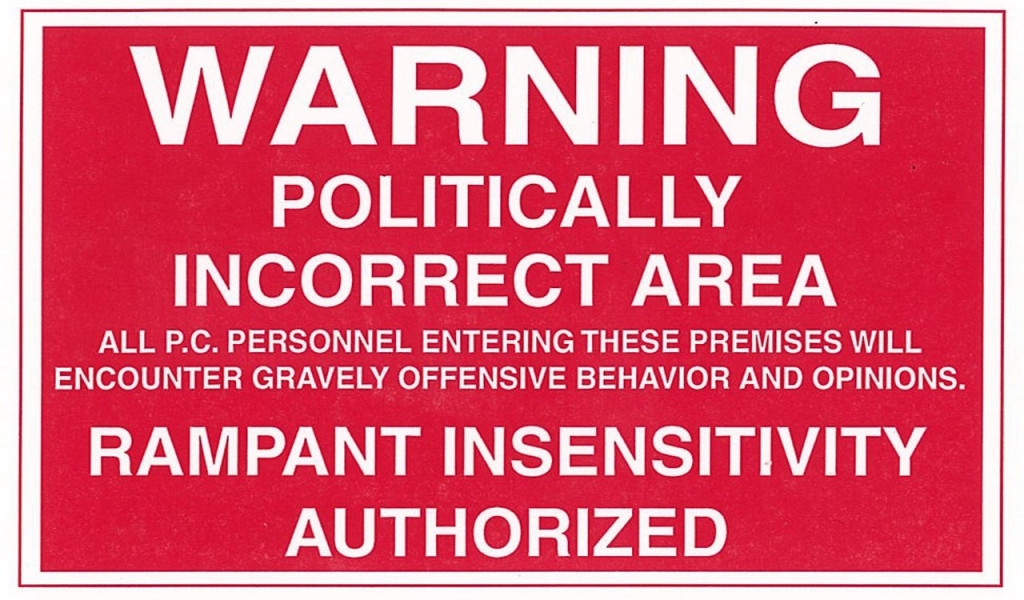Got some good content?
The Pros And Cons Of Political Correctness
Source: The Onion, Dec, 2015
A key issue currently driving a wedge between political parties in the U.S. is the question of so-called political correctness, or the avoidance of language and actions that could be construed as exclusive, oppressive, or marginalizing of minority groups. Here are the pros and cons of political correctness in our national discourse:
PROS
- Refreshing change of pace to treat other human beings with respect
- Makes bigots harder to spot, which creates pleasant illusion that society is progressing
- Has word “correct” in it
- Makes Dan Snyder’s frantic efforts to preserve his football team’s name pretty hilarious
- Masks myriad other ways in which you are giant asshole
- Slightly increases chance of not being completely disavowed by future generations
CONS
- Inconvenient to have to find socially acceptable historical figure to name buildings after
- One less way to relate to the Greatest Generation
- Jews really are conspiring to destroy America
- Sitcom banter even more mediocre
- Your “Drink-o de Mayo” sombrero is the only hat you look good in
- Will most assuredly cost you the election
Warning: Content Likely to Insult
po·lit·i·cal·ly in·cor·rect
-
exhibiting (or failing to exhibit) political correctness.“it is not politically correct to laugh at speech impediments”synonyms: unoffensive, nondiscriminatory, unbiased, neutral, appropriate,nonpartisan; “the true meaning may be clouded by his politically correct language”
A dictionary is a book or electronic resource that lists the words of a language (typically in alphabetical order) and gives their meaning, or gives the equivalent words in a different language, often also providing information about pronunciation, origin, and usage. Our Politically Incorrect Dictionary, however, is a bit different. According to the Collins English lexicon, “If you say that someone is politically incorrect, you mean that they do not care if they offend or upset other people in society, for example with their attitudes towards sex, race, or disability.”
Our purpose is not to offend any (or all) group(s), but, rather, to provide a reliable reference for slang, idioms, expletives, and other linguistic devices that are part of the very dynamic evolution of the American English language. Content contributions from our readers are always considered after they are subjected to the usual evaluative rigor from our board of politically astute editors.









